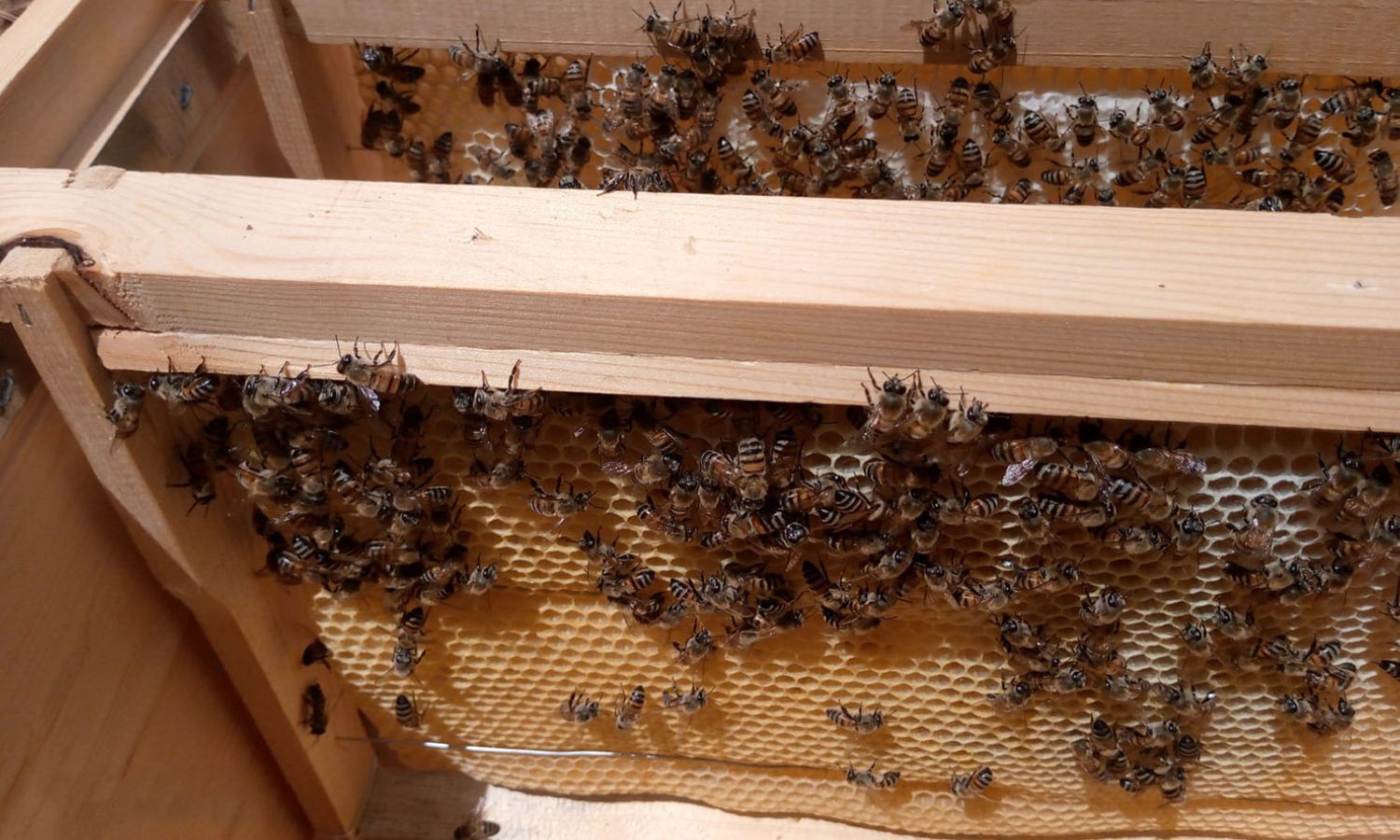



Quneitra – Zain al-Jolani
Mohamad Hijazi, a beekeeper in the southern Quneitra governorate, was surprised by the amount of honey in one of the hives he takes care of throughout the year, as it did not reach half of the production compared to the previous year, as he expected a better season than the previous one.
Hijazi’s hopes evaporated as he inspected the beehive, as he considered that he was facing an unprecedented and extremely bad harvest season, according to what he told Enab Baladi.
The beekeeper, who has been working in beekeeping for years, believes that the reason for the decline in the season this year is related to climate change that affected bees and flowers and the lack of good pastures for bees, in addition to the lack of nectar plants.
Ahmed Saleh, a beekeeper, noted the deterioration in the productivity of the current season compared to previous years.
Saleh told Enab Baladi that he did not face anything worse than the current year’s season, as the amount of production decreased with the instability of the weather and the lack of a temperate climate, which affected the bees’ ability to collect nectar.
The expert beekeeper relies on beekeeping as his only source of income, as he makes every effort throughout the year to take care of the hives, hoping for a good season.
He added, “The deterioration of the season takes away the fatigue of the entire year, as there is no other source of income and no institutions that may compensate or help the beekeepers.”
Agricultural engineer Ahmed Dana, a member of the beekeepers’ association in the Quneitra governorate, told Enab Baladi that many reasons govern the production of honey in the region, the most prominent of which is climate change, such as the rapid variation in temperatures and their sometimes dropping to less than 15 degrees, which made the plant dry quickly without the flowers reaching secretion stage.
In early 2022, the head of the Beekeepers’ Association in Quneitra governorate, Mohamad Dawood, called on the Syrian regime’s institutions to compensate beekeepers affected by climate change and to provide financial support to those who lost their hives so that they can return to work and breed again.
At the time, the local al-Watan newspaper quoted Dawood as saying that in the event that financial support is not provided, Syrian beehives must be provided to the affected people, at least, and as a future plan, support should be provided through the establishment of nectar forests to secure the necessary food for bees to compensate for losses.
Regarding the death and migration of 60% of the beehives in the governorate since 2022, Dawood said the reason is “the wave of frost and cold.”
A member of the Quneitra Beekeepers Association affiliated with the Directorate of Agriculture, spoke to Enab Baladi on condition of anonymity, saying, “The death and migration cases amounted to about 60% of the beehives in the governorate due to frost, while the Directorate of Agriculture in the governorate did not take any action.”
A member of the Beekeepers’ Association in Quneitra confirmed to Enab Baladi that the association contacted the Directorate of Agriculture in the governorate, being the main partner of farmers, to count the number of dead hives and with the Directorate of Plant Protection at the Ministry of Agriculture to send a specialized technical committee to determine the causes of bee mortality and the necessary treatment.
In addition to identifying the reasons for migration, identifying the reasons and developing appropriate solutions, without there being a response or practical steps until today.
The member of the association called on the concerned authorities to compensate the beekeepers who lost their bees during the winter and to find a market for the disposal of honey or open a door for its export during the good seasons.
The Beekeepers’ Association member added that the poor honey harvest season this year also resulted from the high prices of agricultural materials, as some farmers stopped cultivating their lands with some crops that are a source of food for bees and a source of nectar for collecting honey, such as anise and black seed, which were cultivated on hundreds of hectares in the past years.
if you think the article contain wrong information or you have additional details Send Correction